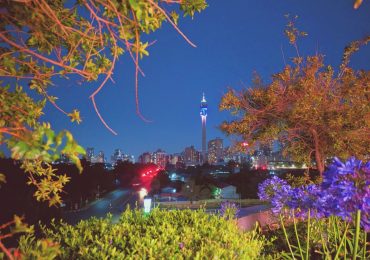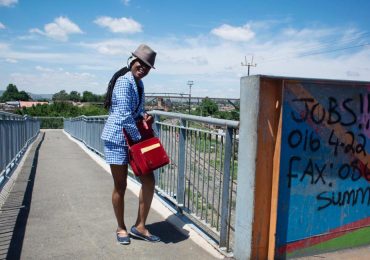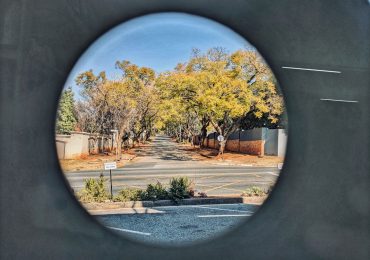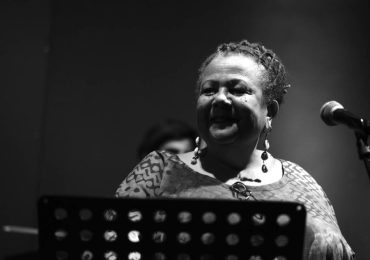Yesterday, the winners of this year’s annual Media24 Books Literary Prizes were announced. When The JRB published the news this afternoon—including the winners, shortlisted books and panels of judges—our report was met on social media with astonishment, dismay and anger.
This anger stems primarily from the fact that all the winners of the awards, as well as the majority of the shortlisted authors and judging panels, are white. In a Black-majority country more than twenty-five years into democracy, and during a moment when the world is seized with Black Lives Matter activism, these responses register the structural imbalances that unacceptably still exist in the South African publishing industry.
The JRB acknowledges that we should have highlighted this lack of diversity as a key angle in our news report.
We have since received statements from several writers and colleagues, which we publish here with their permission. We’ll include further comment as we receive it.
For clarity, the Media24 Books Literary Prizes do not work on an open submission basis: they recognise, according to the organisers, ‘the best work published during the previous year by the Media24 Books division’. This includes NB Publishers (through imprints such as Human and Rousseau, Tafelberg, Kwela Books and Queillerie) and Jonathan Ball Publishers.
This is a developing story. The JRB has reached out to Media24 Books for a statement.
Nozizwe Cynthia Jele
Author (published by Kwela Books) and JRB Editorial Advisory Panel member
I don’t think Kwela Books gave enough effort in terms of publishing Black writers last year, which is part of the problem. And obviously the Black writers they have been publishing for the most part are the same people. So if I, Niq Mhlongo, Sifiso Mzobe or Qarnita Loxton, for example, don’t release a book, it’s dry on the Kwela side.
They need to be more intentional about publishing Black writers. When you look at Kwela Books of a few years ago and what it represented and the interest it drew, I mean, we published with them because we were buying into their vision of finding and publishing Black talent. And if you look at Kwela Books now, that vision is no longer there. That whole imprint for me has lost its original goal or aim. You have to go out of your way to find talent. It’s a concentrated effort. And if you don’t, you end up here.
The thing is, this is the Media24 Books awards, they control it. And that whole company is very tone deaf in terms of picking up what everybody is trying to say or what everybody is struggling with. So yes, they could have at least diversified the judging panel. But for me, what’s important is that there should have been enough books by diverse writers to select from to begin with.
Definitely it’s a bigger problem. It goes way deeper. And for them to even begin to change the status quo, they need to invest in the talent and in keeping and cultivating that talent. There is really no reason for Kwela not to have more Black writers. There’s really no excuse.
This thing is not surprising. But we are all paying attention now.
Fred Khumalo
Author (published by Kwela Books and Penguin Books South Africa) and contributor to The JRB
Without taking anything away from the books that won, the composition of the judging panels speaks volumes. Given this insularity—the panels show a remarkable lack of melanin—it is not surprising that the results do not show an appreciation of the abundance of talent in this country, talent in all its multicultural and gender diversity. Not a single Black African judge! No one is asking for diversity for its own sake, but the reality is that most practicing writers, especially of fiction, are women and Black people whose work is outstanding, by international standards. I am saying these words with the full understanding that the Media4 Awards are for books published by the various wings or imprints of that company.
Niq Mhlongo
Author (published by Kwela Books and Jonathan Ball Publishers) and JRB City Editor
It’s a very shocking and disturbing scenario. It’s difficult to talk about South African literature when you see these kinds of pictures. The picture tells a lot about things that need to be changed in South Africa.
And looking at the judges, with almost all of them being white, it starts from there, actually. If you want to run literary awards, it should represent the demographics of the people. That doesn’t mean we should promote mediocrity. But when the judges are white, the people who win will be white. Literary awards should have judges from different backgrounds. Old, young, Black, white, rural, urban, and so on. We learn from each other. And they should select a good book, a book that is written well. Awards should be reflective of the calibre of literature.
For us to be talking about the prizes instead of talking about the books themselves shows that something is wrong. We should be talking about the books that have won instead of talking about how they won it. It discredits the good books that have been written well by writers who are not at fault. When you talk about Jonny Steinberg, he is a talented, seasoned writer. But now we are not talking about the books. We are not talking about the good work that the writers have done. We are not asking, ‘What is this book and should I read it?’ We are saying ‘Media24 should change.’ The focus is on the awards. We are talking about things that are irrelevant.
So the publishers should definitely be publishing more Black authors. They should be showing more commitment to literature, showing that they are serious about change, because we know that there are a lot of structural changes that need to happen in a setup like Media24.
But if you don’t have enough Black authors, get Black judges then.
It’s not only shocking but it’s also embarrassing. It looks like a platform for particular authors. A platform for friends. There is an undertone of patriarchy, and undertone of racism, of a status quo that does not want to change. There is no democracy in it. It looks as if only white people should be judging literature, as if they are the custodians of taste.
This might not be what the prize organisers intended, but because of what has happened, in people’s eyes and in people’s minds that is what is going to be remembered. I hope that they do better next time.
I’m glad that this whole thing has opened up a debate that South Africa is trying to run away from—that of the structural changes that are needed in the literary landscape as a whole, and especially in publishing.
These Media24 Books awards have in my view unintentionally compromised the authors who have won. By their good gesture of awarding these authors with prizes, Media24 Books has unwittingly put them at the forefront of a race and patriarchy debate within the literary landscape. So, as an author, how do you enjoy and celebrate your award if there is so much noise around it?
Victor Dlamini
The JRB Photo Editor
Given its own shameful history you’d think Media24 would know that whites only events ended in 1994. To bring them back via the back door of literary prizes is poor form.
Efemia Chela
The JRB Contributing and Francophone Editor
How, in 2020, can these awards have only white winners and almost all-white judging panels? In South Africa. An African country.
Publishing in South Africa pretends to be interested in growing a literary culture and a reading culture that is diverse. But time and time again we see a narrow-mindedness in genre, and the types of stories and authors recognised and represented.
Are we really supposed to believe Media24 couldn’t find Black editors, literary critics and reviewers to be judges? Were there no Black literary critics, editors or reviewers available to judge the prizes?
The truth is these institutions simply don’t care. They like the industry to be elitist and white-dominated. It’s the pits.
This is the same publishing industry that claims South Africans don’t read and don’t buy books. The same industry that tells us it’s in crisis. Well, why should the public spend their money on literature that doesn’t speak to them, reflect them or is even by them?
Jonny Steinberg
Winner of this year’s Recht Malan Prize for Nonfiction for his book One Day in Bethlehem, released the following statement to Arts24
It is gratifying to be acknowledged for one’s work. And the judges on the Media24 Awards panels are people of the utmost integrity.
But there is a wider problem. Black literary talent is flourishing. The diversity of experience represented in South African literature is large. I would love to have competed in a field where this diversity was on display.
Trevor Sacks
Winner of this year’s Herman Charles Bosman Prize for Fiction for his book Lucky Packet, released this statement to The JRB following Media24 Books’ statement.
My wife had a dream about me winning the Herman Charles Bosman Prize, a dream that expresses my own feelings with far greater eloquence than words could. In it, I go up to receive the prize (in reality, the winners were announced in a pre-recorded video online). I take the trophy and hold it up victoriously, only to discover, to my horror, that it’s a statuette of Cecil John Rhodes.
Through a cascade of privilege, my novel won a prize, and it was as surprising to me as it was to many others. It’s difficult for any writer of fiction to gain recognition for their work. A lack of representation in publishing makes it even more difficult for Black writers. I’m grateful to the judges for acknowledging my novel, and at the same time I’m aware that it’s robbing the light from other, fine novels, written by Black South African writers.
Besides being a time to examine privilege, perhaps it’s also a time to reflect on the inadequacy of prizes in the field of arts. Could fairness and representativeness, and art itself, be better served through more support for artists than by making artwork run races against each other? But if we are to run races, we should do it fairly, and the field and the adjudicators will have to change.
I plan to donate a portion the proceeds of the prize to a programme that supports Black South African writers.






Niq Mhlongo and Fed Khumalo come closest to identifying what is potentially the most intellectually productive topic of debate in this controversy: how identity modifies literary judgement, and how a diversity of adjudicators can better articulate the merits of the South African literary scene.
The reactions of Efemia Chela and Victor Dlamini to the mere optics of the prize appear the least convincing, because there is no evidence that Media24, in both its publishing and adjudicating process, privileges race over its criterion of literary competence, even if this criterion produces racialised outcomes that should be interrogated. If one does nothing more than claim that the prize is too white, then one adopts the logic of the Wits SRC when they accuse the management of that university of being ‘too Indian’, and therefore un-African.
The inbox is empty
the inbox is empty
oh my gawd I’m poor the inbox is empty?
The inbox is empty
the inbox is empty
oh my gawd I’m black the inbox is empty?
The inbox is empty
the inbox is empty
oh my gawd I’ve no rich white friends the inbox
stays empty!
Eva Mazza
I have penned an open letter to NB Publishers but I would like to add a few comments:
Being a relatively new author and having moved with maverick publisher Melinda Ferguson to NB, I was under the impression that NB was making a concerted attempt to change an entrenched Public perception around the company. The awards speak volumes on how seemingly ignorant Media24 is around these very issues in South Africa, or deaf to them. Nobody is asking for false platitudes or tokenism because they are not needed: there are so many diverse and strong voices in our country that should be invited to stand on the panel. That NB has so few black authors is an issue I know had been articulated to me in a meeting – surely more of a concerted effort should have been made in the past to welcome a diversity of authors, and from all sorts of diverse genres too? It would be interesting to know the criteria used to judge; one hopes that we have moved away from only lauding books that are construed as ‘literary’ … I look at my colleagues Qarnita Loxton and the contribution she has made to the SA chic-lit/ fiction genre and Chase Rhys’ Kinnes’ groundbreaking novel, and I wonder whether they were ever considered never mind awarded? Generally literature and the idea of what constitutes a ‘good book’ is shrouded often times in snobbery, and these ridiculous archaic criteria need to be re-evaluated along with the lack of diversity of panel and authors; after all, it will be one long nepotistic yawn and an empty win if there is lack of representation across colour and genre.